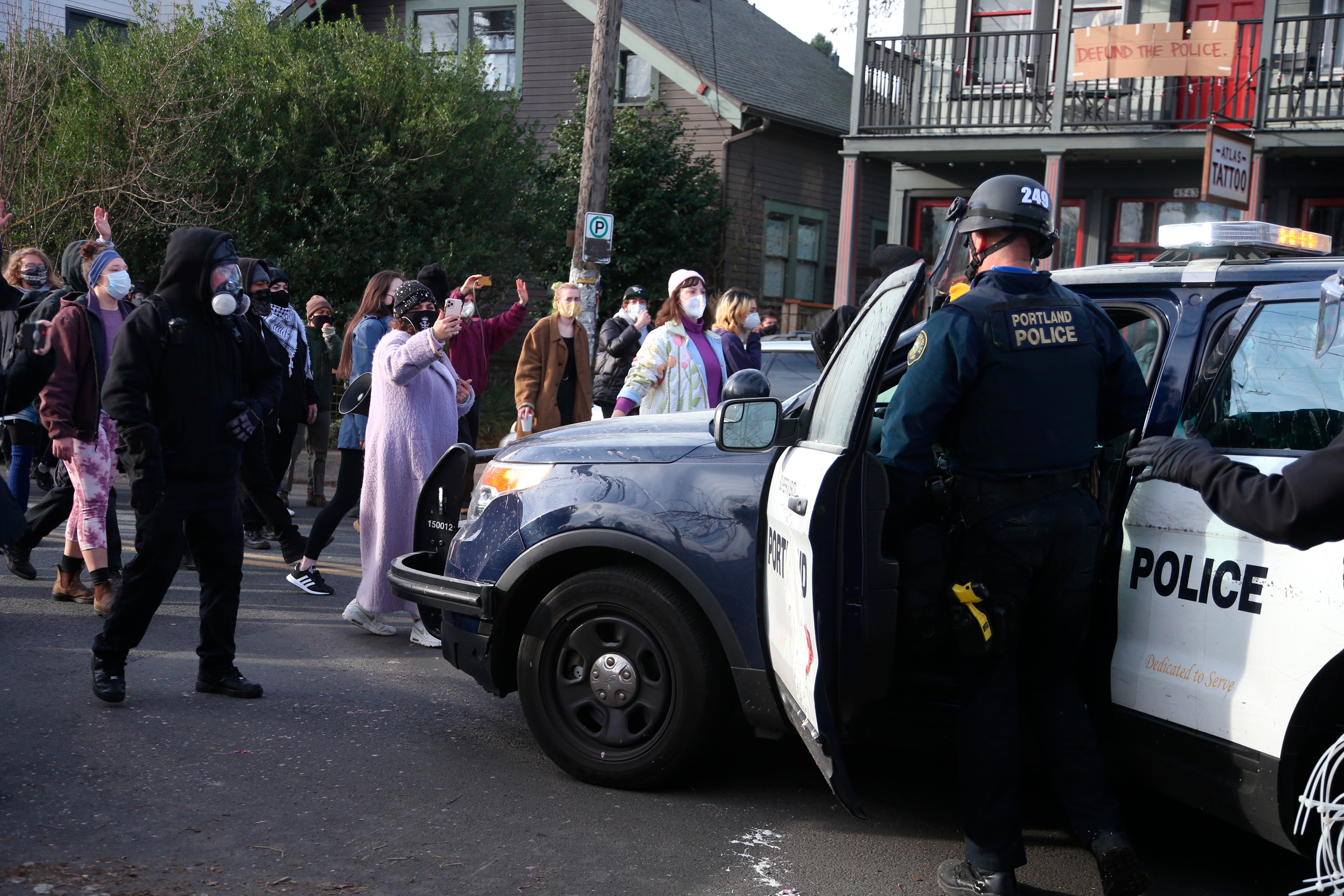Portland barricades still up in anti-gentrification protest
Makeshift barricades erected by protesters are still up in Oregon's largest city a day after Portland police arrested about a dozen people in a clash over gentrification and the eviction of a family from a home

Your support helps us to tell the story
From reproductive rights to climate change to Big Tech, The Independent is on the ground when the story is developing. Whether it's investigating the financials of Elon Musk's pro-Trump PAC or producing our latest documentary, 'The A Word', which shines a light on the American women fighting for reproductive rights, we know how important it is to parse out the facts from the messaging.
At such a critical moment in US history, we need reporters on the ground. Your donation allows us to keep sending journalists to speak to both sides of the story.
The Independent is trusted by Americans across the entire political spectrum. And unlike many other quality news outlets, we choose not to lock Americans out of our reporting and analysis with paywalls. We believe quality journalism should be available to everyone, paid for by those who can afford it.
Your support makes all the difference.Makeshift barricades erected by anti-gentrification protesters in Oregon's largest city were still up on Wednesday, a day after Portland police arrested about a dozen people amid clashes over the eviction of a family from a home
Tents were set up near the house and groups of people were still in the area after police said people among the among the demonstrators on Tuesday hurled rocks at officers and damaged police vehicles.
Mayor Ted Wheeler said in a statement that he had authorized police “to use all lawful means to end the illegal occupation.”
“It’s time for the encampment and occupation to end,” Wheeler said in the statement that also acknowledged the issues the protesters want to address, such as housing and health care.
The clash fits into a larger debate roiling in Oregon about whether state lawmakers should extend a pandemic-inspired moratorium on evictions that’s set to expire within weeks. Federal renter protections are also set to expire on Dec. 31 and housing advocates are worried that an end to those policies could lead to a huge wave of the newly homeless.
Portland has been the site of frequent protests, many involving violent clashes between officers and demonstrators, ever since the police killing of George Floyd in Minneapolis in May.
A group of activists for months have camped at the home dubbed “Red House on Mississippi” because it is on North Mississippi Avenue — to express their outrage against gentrification and the eviction of the Black and Indigenous family in September.
The Oregonian reported that the house had belonged to the Kinney family since the 1950s, according to the website for the Red House on Mississippi group protesting the eviction.
The Kinneys paid off their house but took out a new mortgage to pay defense lawyers after a family member was arrested in 2002, the Red House on the Mississippi group has said.
The house went into foreclosure and was sold to a developer at a 2018 auction, according to the group.
The property’s owner complained that people were trespassing and officers showed up before dawn and made the arrests. TV images showed the clashes Tuesday morning.
Following the arrests and the clashes, protesters Tuesday afternoon used power tools to set up a barricade with wire fencing, debris and wood pallets to block off street access to the house. The demonstrators also hung signs saying “Stop the Foreclosures” and “No Jurisdiction.”
Police in their statement said authorities between September and November received at least 81 calls about the property — including reports of fights, shots fired, burglary, thefts, vandalism, noise violations, trespassing, threats and illegally blocking traffic, sidewalks and access to homes.
___
Cline is a corps member for the Associated Press/Report for America Statehouse News Initiative. Report for America is a nonprofit national service program that places journalists in local newsrooms to report on undercovered issues.